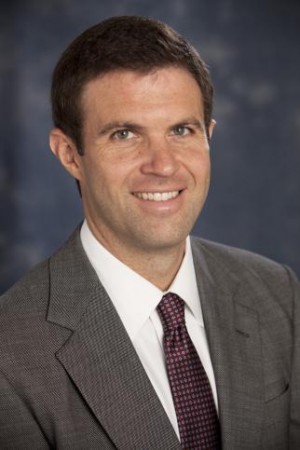

By Jordan Corona &
Rebecca Fiedler
Staff Writers
U.S. Rep. Bill Flores, R-Texas, and political director of the U.S. Chamber of Commerce Rob Engstrom discussed topics of national interest with Wacoans Thursday morning at Waco’s first State of the Nation Luncheon.
Flores took the stage before members of the local business community in the Brazos Ballroom at the Waco Convention Center as the first speaker.
He compared both the state and local political district’s unemployment rates to the national unemployment rate.
“The unemployment rate here in Texas is 4 percent better than it is nationally,” Flores said. “Here in District 17, the unemployment rate is down to 4.9 percent, which is half a point or so better than the rate of the state of Texas. And this is because of what’s happening in places like Waco.”
Flores said he blames the federal government for some of the struggles local businesses have.
“Whether you’re a home builder here in town and you’re having to deal with OSHA, or if you’re a part of a loan servicing company that’s having trouble getting the board of education to live up to the contracts that they said they would provide you, those are the issues that are coming out of Washington, D.C.,” Flores said.
He said the current situation with the federal government is dysfunctional because of the differing political views concerning federal involvement in people’s payment.
“I think that if I had to compare big government acts versus a paycheck, I’d take the paycheck every day,” he said. “I think this community of Waco and McLennan County can deal with its problems better than a bunch of bureaucrat in Washington, D.C., telling you how to run your lives and how to run your business or what you can or can’t do, and what kind of health care you have to provide for your employees.”
In a follow-up interview, Flores said some individuals on welfare take advantage of federal benefits.
“There are some people willing to trade their freedom and liberty to have the certainty of having the government provide for them,” Flores said. “I don’t know why people think the federal government can take care of everything, because it can’t.”
Flores said he believes the federal government is too involved in American society.
“My mantra is ‘more jobs and better paychecks,’” Flores said. “That is ‘the cure.’ On the other side you have a different view. For everything that ails America, there’s a big government ‘app for that.’ And I think that if I had to compare the big government ‘apps’ to paychecks, I’d go paychecks every time.”
Baylor alumnus Rob Engstrom is the senior vice president of the Political Affairs and Federation Relations Division, and national political director at the U.S. Chamber of Commerce.
Engstrom spoke after Flores, calling for the Democratic and Republican parties to find areas of legislation on which they can agree.
Engstrom said former president Ronald Reagan, a Republican, was able to work with Democrats, and former Democratic president Bill Clinton and past Republican presidential nominee John McCain were able to work together on political issues.
“They worked as partners and realized that if you don’t win you can’t govern, and if you don’t govern, you’re not going to win,” Engstrom said.
Engstrom said there is a lot of uncertainty in the government and that political parties must find common ground.
“If you look at what’s happened in the last five or six years — all the energy issues, all the health care issues, labor and financial service issues — this is not a finite threat for a short period of time,” he said. “These are issues that go across the economy, where all industries are impacted across the country, regardless of the size of the company, and uncertainty remains.”
Engstrom said one area of legislation politicians may be able to agree on is that of transportation and infrastructure. He said building roads and airports is not a partisan issue.
Engstrom advised voters to be conscientious of candidates’ stances on free enterprise.
“Who is the candidate in each party that has free enterprise-based solutions?” he said.
Since the early 1980s, Engstrom said, the U.S. government has become more and more polarized politically.
Engstrom said he believes the U.S. needs to re-establish a middle ground with enterprise issues, not in terms of politicians compromising their values, but finding points of agreement.





